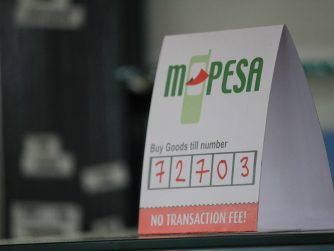
When it comes to consumer buyer patterns, an interesting psychological process unfolds. According to author Jonah Lehrer, “In general, people rely on a simple heuristic, or mental short-cut, when trying to evaluate the quality of a product: we assume that more expensive things are of higher quality. In other words, you get what you pay for. As a result, we automatically suspect products on sale of being faulty, or inferior. And because our expectations profoundly influence our experience, an olive oil that we expect to be lower in quality will actually taste lower in quality.”
Baba Shiv, a neuroeconomist at Stanford, supplied a group of people with Sobe Adrenaline Rush, an “energy” drink that was supposed to make them feel more alert and energetic. The drink contained a potent brew of sugar and caffeine which, the bottle promised, would impart “superior functionality”. Some participants paid full price for the drinks, while others were offered a discount. The participants were then asked to solve a series of word puzzles. Shiv found that people who paid discounted prices consistently solved about thirty percent fewer puzzles than the people who paid full price for the drinks. The subjects were convinced that the stuff on sale was much less potent, even though all the drinks were identical.
Why did the cheaper energy drink prove less effective? According to Shiv, consumers typically suffer from a version of the placebo effect. Since we expect cheaper goods to be less effective, they generally are less effective, even if they are identical to more expensive products. This is why brand-name aspirin works better than generic aspirin, or why Coke tastes better than cheaper colas, even if most consumers can’t tell the difference in blind taste tests. “We have these general beliefs about the world?for example, that cheaper products are of lower quality?and they translate into specific expectations about specific products,” said Shiv. “Then, once these expectations are activated, they start to really impact our behavior.”
This is consumerism at its best. The mega and multi-site churches have tapped into this consumerism. Megachurches are the brand name product. They spend lots of money on branding and advertising and they look “expensive”. They look genuine. All you have to do is say their name: Willow Creek, Saddleback, Fellowship, Northpoint, Life Church. Everybody in the area knows what they are. That is also why everybody jumps on the popular “brand” names: Journey and Fellowship are names that come to mind. This is also why they go multi-site. The brand sells.
But what it also does is turn churches that have less resources into the generic version of the brand. They are not as flashy, not as “expensive” feeling or looking, and thus are not as genuine as the church that spends so much money on appearances and the show, the production that occurs each weekend. They can’t advertise their brand so they are practically unknown. They are not perceived as genuine, thus they are “church lite”, a copy, and not as effective in satisfying needs.
People associate with a brand of Christianity. But here is the bigger question: Do people associate the followers of the brand with the creator of Christianity or with the brand of Christianity the followers are pushing? The jury may still be out on that. As Matt Casper told Jim Henderson after visiting ten megachurches in the US, “Is this really what Jesus told you guys to do?”







New blog post: The Psychology of the Sale and Mega/Multi-site http://tinyurl.com/cj327g